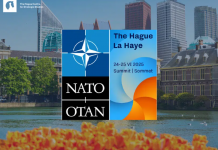The role of social partners, quality of training and effective funding mechanisms emerged as the key issues when the European Training Foundation (ETF), an EU agency, and its partners met in Tallinn, Estonia, to discuss and review the findings of the regional project on continuing vocational training (CVT) in Eastern Europe. The three-year project, launched in 2011, aims to strengthen the role of CVT in the context of socioeconomic challenges faced by Armenia, Azerbaijan, Belarus, Georgia, Moldova, Russia and Ukraine.
According to an ETF press release, participants agreed that the role of social partners (employers and in particular trade unions) should be further enhanced to improve CVT policies. Moreover, adopting special legislation on CVT and adult learning is important to universalise access to lifelong learning, while giving more chances to higher risk groups (e.g. low skilled or elderly) to take part in continuing education and training. The participants found the Estonian example in this field very useful. They agreed that international cooperation and sharing experience, as facilitated by the ETF, is crucial in facing the challenges in all these areas.
More specifically:
– Partners from Armenia and Georgia found it valuable to work with the ETF on the development of the validation of non-formal and informal learning.
– Azerbaijan, Belarus and Ukraine plan to explore the role of sectoral skills councils to support forecasting training needs to respond better to current labour market needs.
– Moldovan participants believe that the development of methods for training needs assessment for better quality and relevance are essential to make CVT and adult learning provision more attractive and the policies more sustainable.
The European Training Foundation is an agency of the European Union established to contribute to the development of the education and training systems of the EU partner countries. With an annual budget of €18 million, its mission is to help transition and developing countries to harness the potential of their human capital through the reform of education, training and labour market systems in the context of the EU’s external relations policy. (EU Neighbourhood Info)







